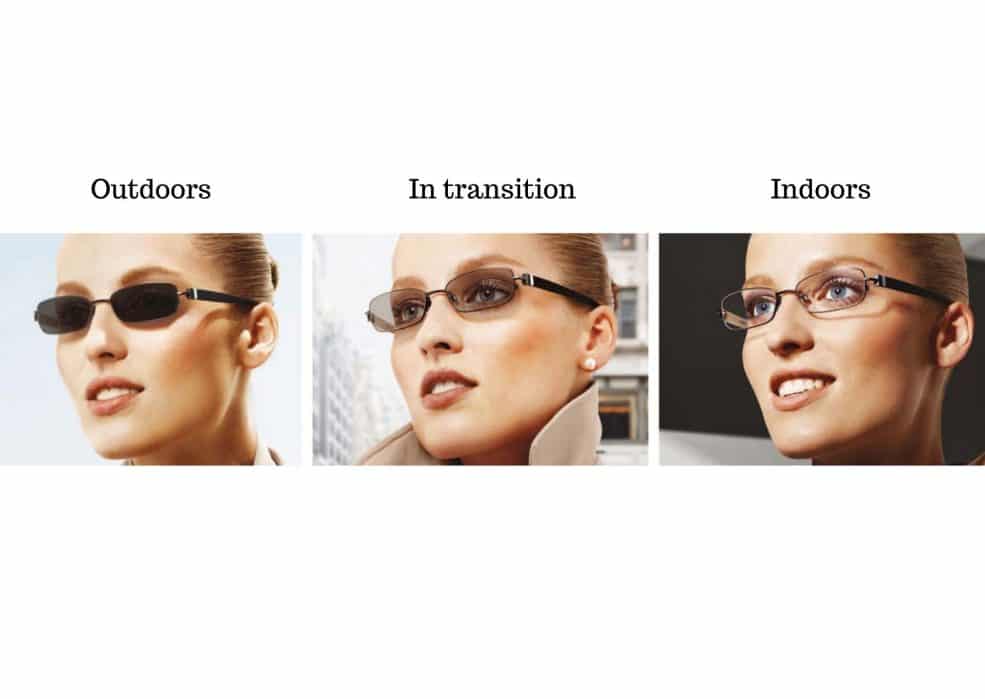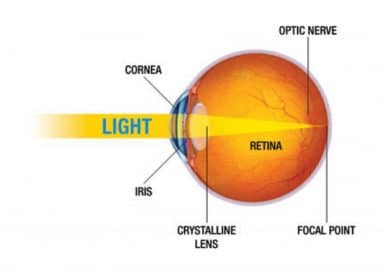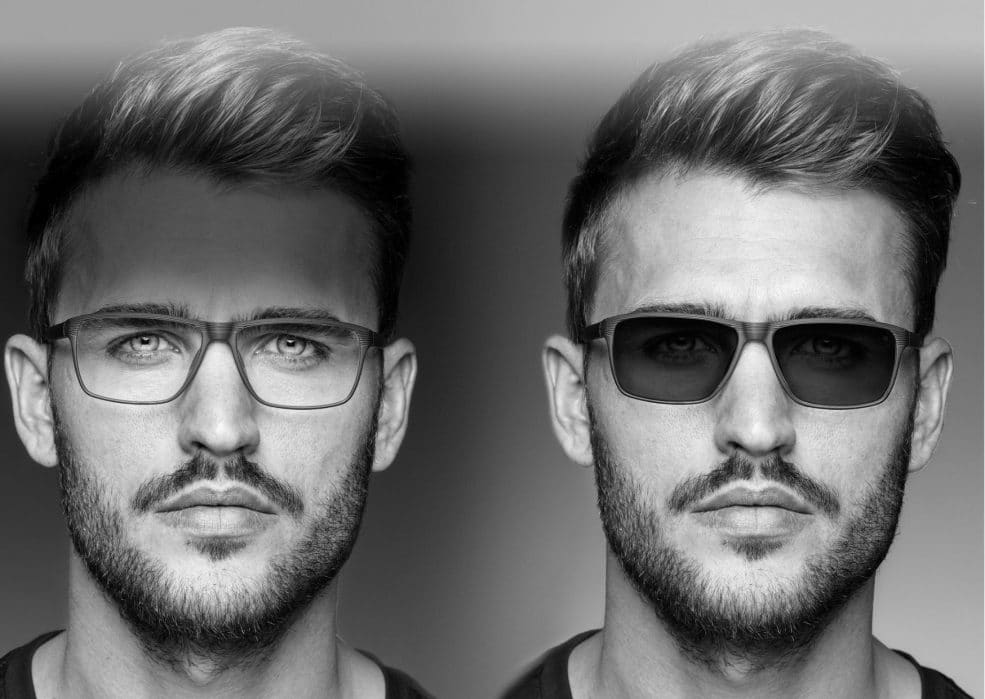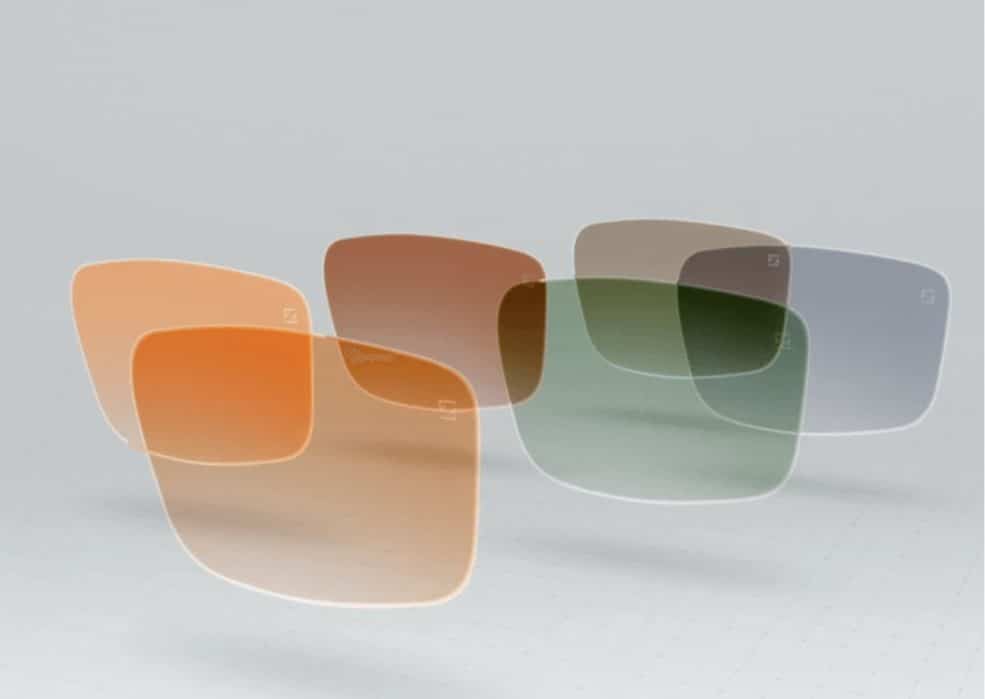
What are Transitional Lenses?
Transition ‘photo-chromic’ lenses have been around for some time now, and are a good alternative to a pair of sunglasses if you are wearing glasses 24/7. As UV light increases, they darken, providing comfort and ease in a range of light conditions. Transitioning to transitions can be a no brainer for some people, but for others, it may be a question of if it fits their current lifestyle.
Protecting your Sight from Light
Your sight is invaluable. Everyday, we depend on our sight to work, live and survive. It is important to protect it and try to make things more comfortable for our eyes as they work hard, (as does the rest of the body!).
When light enters the retina (a light-sensitive layer of tissue at the back of the eye), cells called photoreceptors turn the light into electrical signals. These electrical signals travel from the retina through the optic nerve to the brain. Then the brain turns the signs into the images you see.
Over-stimulation from bright lights can lead to permanent retinal damage. Which is why wearing a pair of glasses with photochromic lenses would provide you with the visual comfort and protect your eyes from the sun’s harmful UV rays. This will also protect your eyes against cataracts later down the track.
What are the pros of transition lenses?
- The convenience is a big plus. Not having to carry around multiple pairs of glasses to swap between when doing different tasks
- They have UV protection so you are not losing anything valuable by switching to transitions lenses.
- They won’t get lost easily since you will be wearing them all the time
- In the long run, this can save you money, especially since it is only one pair of prescription lenses rather than multiple
- Since they are adaptive lenses, even when it is overcast outside, they will still transition due to the UV rays
- If you like to the look of your glasses tinted or clear then you receive the best of both worlds with transition lenses
- If you like to read outside, transitions are perfect as it will help with brightness control and protect your eyes
What are the cons of transition lenses?
- Irrelevant if you only want to wear glasses indoors. There is no point in choosing these lenses if you don’t need to be wearing glasses all the time or don’t want to wear glasses outside.
- Ineffective in cars. Windscreen’s already have some UV protection, therefore the lenses will not activate and you won’t have sunglasses whilst driving or in the car.
- Not instantaneous. The lenses can take from 2-4 minutes to become clear, so there is a short period of time where you will be waiting for them to process.
- Temperature-sensitive. In cooler weather, transitions will change colour faster and in the warmer climate, it will slow down. Also, they will never reach the same darkness as polarized lenses.
What are Polarized Lenses?
Polarized lenses are a great choice for anybody who enjoys the outdoors and being outside. They are designed to protect against UV rays and to reduce glare from water, glass and snow. Polarized lenses work by having a laminated filter that scatters glare. Wearing polarized lenses can provide relief and comfort to the eyes as light can be damaging and uncomfortable. Although they are very useful in everyday life, these lenses may not be for everyone.
What are the pros of Polarized Sunglasses?
- No waiting time for your lenses to darken. They are set at the ideal darkness for your eyes
- Great protection. Polarized lenses provide protection against UV rays and glare of all sorts
- Brown polarized lenses increase contrast and depth. High-contrast means they are ideal for fisherman who will be able to spot fish a lot quicker. Also ideal for golfer’s so they are able to see the ball against the green.
- Grey polarized lenses allow for true perception of colour. This means they are all purpose and great for most outdoor activities.
- Amber/Rose polarized lenses are perfect for cyclists as they increase visual acuity. They provide the brightest field of vision and are ideal for weak to no sunlight.
What are the cons of Polarized Sunglasses?
- Not compatible with most devices such as computer screens, phone screens, even the screens in a car. It is possible they will react to the windscreen too but that would depend on the car and how dark the windscreen material is
- Not useful for night driving or night-time at all. Which means they can only be used during daylight hours
- Cost vs. wear. Polarized lenses may be more affordable than transitions, however, across the board, you will not be wearing them to the same extent as transitions. So it works out to be more cost-effective for transitions in the long-term.
So what’s the verdict?
Whichever lenses you choose will be an advantage to you and your vision in everyday life. Using the above pro’s and con’s for each product can be the determining factor of what will be better suited to you. If you are still unsure what you should go for, book a frame consultation by calling us on 8224 0819 or simply walk in and ask us a few questions.





